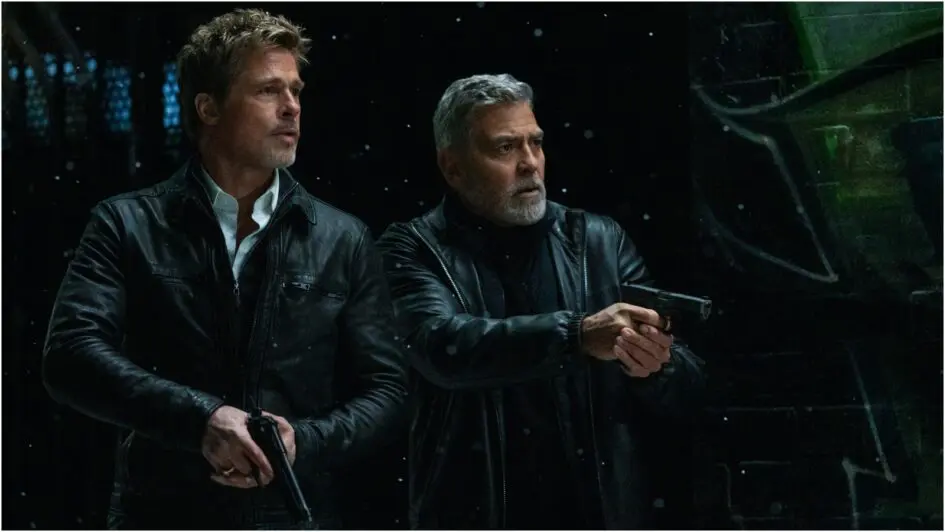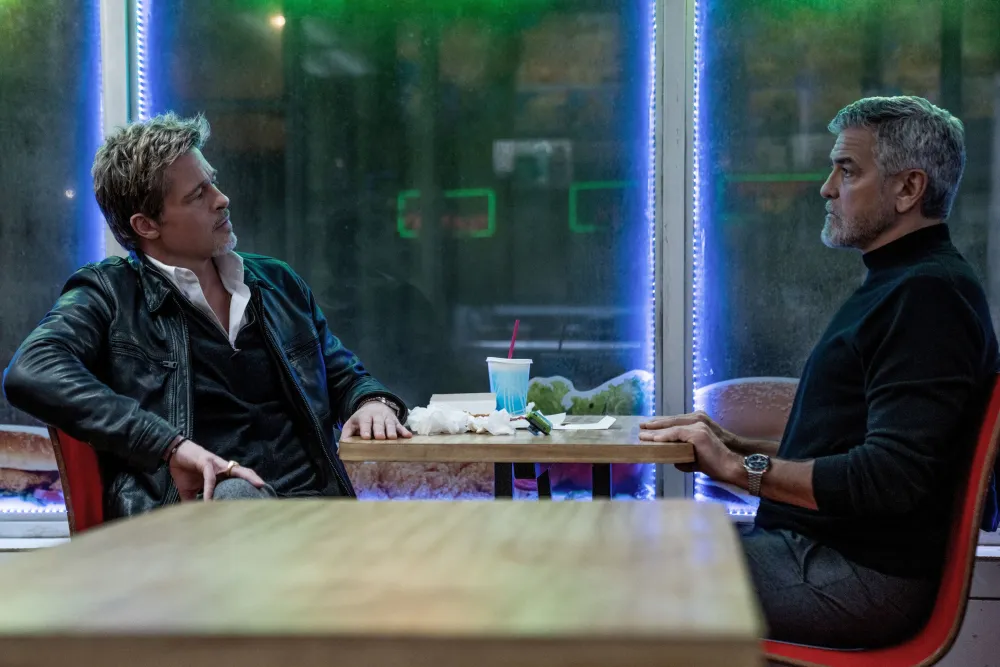George Clooney and Brad Pitt have established undeniable on-screen chemistry, particularly in films like Ocean’s Eleven (2001) and its sequels, where they play Danny Ocean and Rusty Ryan, respectively. Their dynamic is akin to a well-placed bet at a poker table — confident, calculated and an almost guaranteed payoff. The pair’s natural charisma and playful banter make their interactions effortless, much like seasoned gamblers who understand each other’s every move.
Given their track record, casting them together in future projects feels like a low-risk gamble for studios, as they consistently deliver performances that audiences eagerly embrace, stacking the deck in favor of success.
Apple Studios took that gamble by placing director Jon Watts at the helm of the thriller-comedy, Wolfs. The story centers on a district attorney (Amy Ryan) whose fling with a young man (Austin Abrams) at a luxury hotel takes a deadly turn when he ends up dead. Panicked, she calls in a “fixer” (George Clooney) to handle the situation. But things quickly escalate when another fixer (Brad Pitt), hired by the hotel, shows up.
As the two try to figure out what’s really happening, they discover the dead man was a smuggler for the Albanian mafia. With limited time and options, the unlikely duo must not only dispose of the body, but also return the drugs before they meet a deadly fate themselves.
The premise may feel familiar — a classic trope where two professionals are forced to work together in high-stakes situations. It’s a narrative device we’ve seen time and time again, yet it continues to captivate audiences when executed well. Films like Lethal Weapon (1987) and Rush Hour (1998) have perfected this formula, with mismatched duos learning to collaborate under pressure, despite their differences.
Similarly, in The Heat (2013), Sandra Bullock’s uptight FBI agent and Melissa McCarthy’s chaotic detective embody the trope with comedic flair. The appeal lies in the tension and eventual camaraderie that arises from two contrasting personalities being thrust into a situation where cooperation is the only option.
In Wolfs, Clooney and Pitt take on the reluctant partnership trope, but with an intriguing twist: both play underworld fixers, professionals who clean up messy crimes for a price. While this premise offers a fresh angle on the odd-couple formula, placing them in the same high-stakes profession, the execution falls short of expectations. The film had all the ingredients for success — two of Hollywood’s most charismatic stars, sharp banter courtesy of Watts and the promise of unexpected twists (no spoilers here) — but it never fully delivers. Because of this, Wolfs feels underwhelming.
Instead of becoming something memorable, it hovers at just OK. The actors’ charm and playful dialogue aren’t enough to compensate for the weak plot and characters that just don’t feel real. Beyond their surface-level appeal, neither the characters nor the scenarios are developed enough to sustain interest. What could have been a dynamic mix of humor, tension and suspense ends up feeling like a missed opportunity, lacking the depth or complexity to make it truly stand out.
The blame for Wolfs ultimately falls on Jon Watts, who not only directed, but also penned the script. Given his previous success with the MCU Spider-Man trilogy, adding Watts to the George Clooney-Brad Pitt dynamic should have been a jackpot success. In those superhero films, Watts demonstrated an ability to balance character development and plot in a way that made for cohesive, engaging storytelling. But in Wolfs, his shortcomings as a filmmaker are laid bare. The film fails to deliver even a single memorable moment, lacking the spark that could have elevated it beyond formulaic.
The talents of both Clooney and Pitt are wasted here, as even actors of their caliber can only do so much when saddled with a lackluster script. With thinly written characters and a plot that never rises above mediocrity, Watts’ writing offers no depth or nuance to keep audiences invested, resulting in performances that feel more obligatory than inspired.
What could have been a high-stakes, entertaining thriller with doses of dark comedy instead falls flat, leaving the audience with a film that feels lifeless and uninspired. It’s a missed opportunity — one where even the star power of Clooney and Pitt can’t save it from being forgettable.
Wolfs earns a disappointing two out of five stars. On paper, the pairing of George Clooney and Brad Pitt should have been a guaranteed royal flush — a cinematic dream team poised to dominate the box office and deliver a thrilling, memorable experience. However, the film falls far short of its potential, and the blame lies squarely with Jon Watts. As both director and writer, Watts had the opportunity to craft something worthy of the combined star power of two of Hollywood’s greatest actors.
Instead, his missteps were the fatal blow that undermined the entire project. Rather than becoming a high-stakes reunion, Wolfs will be remembered as a missed opportunity — a dismal failure that wasted their immense talents. This gamble just did not pay off and proves there is no such thing as a sure thing in Hollywood.

